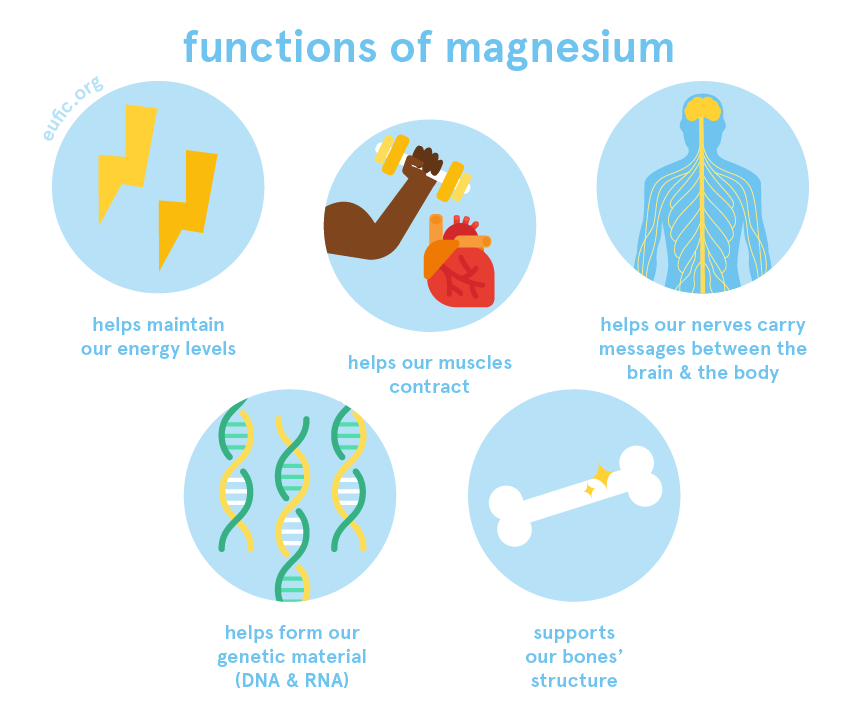Is magnesium malate good for bones?
Magnesium is a vital element for human health and is involved in practically every biological function, from heartbeat to bone formation and blood sugar management. It controls about 300 enzymes in the body, the majority of which create, transfer, store, and use energy.
What is magnesium malate?
Magnesium malate is a compound that contains malic acid and magnesium that improve magnesium absorption.
1. Malic acid is present in many fruits, including oranges, and has several health advantages.
2. Magnesium oxide provides elemental more magnesium by weight. However, it is poorly absorbed by the human body.
3. Magnesium malate and dimagnesium malate are organic magnesium compounds composed of elemental magnesium linked with a malic acid molecule.
4. This chemical combination allows for greater absorption of magnesium and lowers the risk of side effects such as diarrhea.
For numerous reasons, magnesium malate is chosen over other forms of magnesium. It is less expensive than several amino acid chelate forms, such as magnesium glycinate or lysinate, yet it has higher bioavailability than oxides and sulfates.
Magnesium malate has the same advantages as malic acid, including support for cellular energy generation (Krebs cycle) and chelation of heavy metals such as aluminum.

12 health benefits of magnesium malate
Twelve potential health benefits of magnesium malate include:
1. Reduces blood pressure: Taking magnesium helps reduce blood pressure. One research discovered that participants who took 450 mg of magnesium per day had lower systolic and diastolic blood pressure. However, more research is required because the results are still debatable.
2. Controls blood sugar: Magnesium is essential for the metabolism of sugar in our bodies. Magnesium insufficiency is linked to diabetes, insulin resistance, and metabolic syndrome, as well as unpredictable blood sugar levels. Magnesium supplementation can help manage blood sugar levels and cholesterol.
3. Prevents heart diseases: If you do not get enough magnesium, your heart’s electrical impulses and the health of your blood vessels may suffer. Magnesium deficiency is linked to coronary artery calcification, and evidence shows that taking magnesium supplements can help prevent heart disease, endothelial dysfunction, platelet aggregation, vascular calcification (artery stiffness), and atherosclerosis. Many studies report that getting the right quantity of magnesium reduces the risk of cardiovascular disease significantly.
4. Promotes sleep: Melatonin, the sleep hormone, cannot work effectively if magnesium levels are low. Melatonin is in charge of sleep regulation, and without it, it may be difficult to fall and remain asleep pleasantly. Because magnesium is believed to have a part in regular sleep regulation, magnesium malate may aid in your sleep process.
5. Helps with constipation: Magnesium promotes intestinal peristalsis (involuntary muscle contractions in the gut that transport food through the digestive tract) and softens stool by attracting water to the intestinal tract. These acts not only prevent and relieve constipation but also help the body's natural detoxification processes.
6. Anti-inflammatory properties: Magnesium helps lower inflammation in the body. A lack of magnesium is linked to chronic inflammation and may be a risk factor for illnesses such as arthritis and fibromyalgia.
7. Builds muscle: Magnesium is necessary for the synthesis of growth factors, which impact the development of our muscle fibers. Magnesium boosts athletic performance and strength. You may improve athletic performance even more by taking enough protein containing essential amino acids that promote the formation of lean muscle mass.
8. Helps with depression: Magnesium shortage is thought to be linked to depression due to its function in the synthesis of the chemicals dopamine and serotonin. A study conducted on a group of people reported that magnesium supplementation was found to be effective in alleviating mild-to-moderate depression after just two weeks. Although magnesium insufficiency is not the main cause of depression, it may be a contributing factor that can be alleviated with a magnesium supplement.
9. Reduces anxiety: Magnesium helps calm the nervous system and reduce stress. Magnesium deficiency can result in increased stress, fatigue, and anxiety. Although the more scientific study is needed to clarify our knowledge of magnesium's influence on anxiety, it is widely accepted that magnesium boosts neurotransmitters that lower stress while reducing those that are associated with increased stress. A study reported that due to its stress-relieving properties, magnesium may be an effective therapy for anxiety.
10. Improves bone health: Magnesium is required for bone tissue formation and calcium absorption in the body. As a result, magnesium plays a vital role in bone density maintenance and osteoporosis prevention.
11. Helps with energy production: Malic acid is essential for the body's energy synthesis. Magnesium malate supplementation is thus seen as a comprehensive strategy to boost energy levels, particularly if you frequently feel sluggish or exhausted.
12. Prevents premenstrual syndrome in women: Magnesium is required by the female reproductive system. A study of the scientific literature reveals that magnesium supplementation is useful in the prevention of premenstrual syndrome, dysmenorrhea, and menstrual migraines. Women with adequate magnesium levels may find their menstrual periods more tolerable, whereas pregnant women may find magnesium supplementation even more important due to their increased vulnerability to magnesium insufficiency. Because magnesium is required for fetal growth, protein synthesis, and tissue formation, it is frequently included in a woman's prenatal treatment.

What is the recommended dose for magnesium malate?
Magnesium malate supplements are typically taken orally with food.
The recommended daily allowance of magnesium for the general population, according to the National Institutes of Health, varies with age and gender:
| Age | Men | Women | Pregnancy | Lactation |
|---|---|---|---|---|
| Birth to 6 months | 30 mg* | 30 mg* | - | - |
| 7 to 12 months | 75 mg* | 75 mg* | - | - |
| 1 to 3 years | 80 mg | 80 mg | - | - |
| 4 to 8 years | 130 mg | 130 mg | - | - |
| 9 to 13 years | 240 mg | 240 mg | - | - |
| 14 to 18 years | 410 mg | 360 mg | 400 mg | 360 mg |
| 19 to 30 years | 400 mg | 310 mg | 350 mg | 310 mg |
| 31 to 50 years | 420 mg | 320 mg | 360 mg | 320 mg |
| 51+ years | 420 mg | 320 mg | - | - |
| *Adequate intake | ||||
Malic acid doses range from 1,200 to 2,800 mg per day.

The Role of Magnesium in Bone Health
Magnesium is a vital mineral for the human body, and around 60% of it is stored in our bones. Here’s how it contributes to bone strength:
Supports Bone Density: Magnesium plays a critical role in the structural development of bone and helps regulate calcium levels. Low magnesium levels have been linked to lower bone mineral density and a higher risk of osteoporosis.
Activates Vitamin D: Vitamin D is essential for calcium absorption, and magnesium helps activate it in the kidneys. Without adequate magnesium, your body can't effectively utilize the vitamin D you consume.
Reduces Inflammation: Chronic inflammation can contribute to bone loss. Magnesium has anti-inflammatory properties that help protect bone tissue.

Can Magnesium Malate Help Prevent Osteoporosis?
While more clinical research is needed, several studies suggest that adequate magnesium intake is associated with higher bone mineral density, which may reduce the risk of osteoporosis, especially in older adults and postmenopausal women. Magnesium malate, due to its superior absorption and gentle nature, is a strong candidate for anyone looking to increase their magnesium intake naturally and effectively.

Who Should Consider Magnesium Malate?
Magnesium malate can be especially beneficial for:
Older adults concerned about bone loss
Athletes and active individuals needing better muscle and bone support
People with magnesium deficiency symptoms, like muscle cramps, fatigue, or sleep issues
Those with chronic fatigue or fibromyalgia, as malic acid may help reduce muscle pain

Conclusion
Magnesium malate is an excellent choice for supporting bone health due to its high bioavailability, gentle nature, and additional benefits from malic acid. Magnesium is vital for maintaining bone density, activating vitamin D, and supporting calcium metabolism.
While calcium and vitamin D are essential, magnesium is the "missing link" in many bone health routines. Without it, bones can become brittle, and the risk of osteoporosis increases—even if you’re getting enough calcium.
So if you’re looking for a supplement that not only supports your bones but also boosts your energy and overall well-being, magnesium malate is definitely worth considering.
References
Rude, R.K., Gruber, H.E., Wei, L.Y., Frausto, A., & Mills, B.G. (2009). Magnesium deficiency: a cause of osteoporosis? Journal of the American College of Nutrition, 28(2), 131–141. https://doi.org/10.1080/07315724.2009.10719764
Orchard, T.S., Larson, J.C., Alghothani, N., et al. (2013). Magnesium intake, bone mineral density, and fractures: results from the Women's Health Initiative Observational Study. Osteoporosis International, 24(2), 527–535. https://doi.org/10.1007/s00198-012-2017-0
Braverman, E.R., & Pfeiffer, C.C. (1987). The Healing Nutrients Within. Keats Publishing.
Rosanoff, A., Weaver, C.M., & Rude, R.K. (2012). Suboptimal magnesium status in the United States: are the health consequences underestimated? Nutrition Reviews, 70(3), 153–164. https://doi.org/10.1111/j.1753-4887.2011.00465.x

